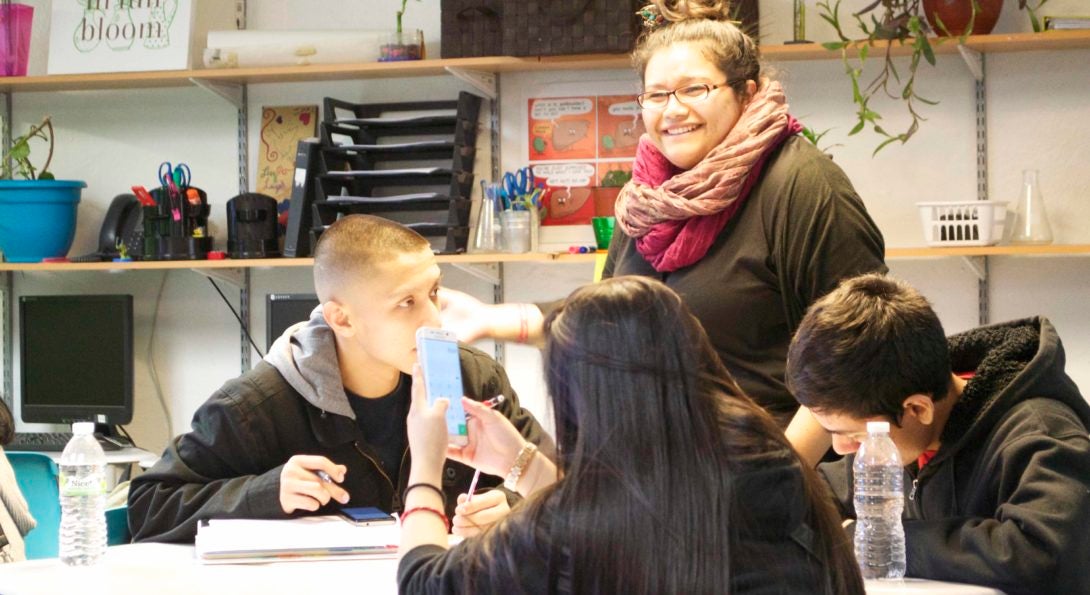Science Connections to Life at Alternative School

Introduction
For students who drop out of high school to care for a family member or to seek employment to support their family, the relevance of a science experiment to their lives might be hard to see.
At Instituto Justice and Leadership Academy in Chicago’s Little Village neighborhood, Adilene Aguilera, MEd Science Education ’16, teaches science lessons to students ages 15-21 who have been out of school for a year or more. Her professional development experiences are connecting science to the lived experiences of her students.
In the summer of 2016, Aguilera attended the Midwest Regional Robert Noyce Connections Exploring Space Science conference in Orlando, touring the Kennedy Space Center and networking with fellow science teachers. In her classroom back in Chicago, her students’ confidence as science learners is bolstered by the concept of a member of their own community engaging as a scientist.
“Some of our students have a hard time reintegrating back into school, so when I talk about my experiences at the conference, some of my students are amazed just knowing there is someone from their community that went there,” Aguilera said. “That gives them hope, and I really like bringing that hope back in for our students.”
From networking with teachers at the conference, Aguilera devised plans to create labs based on simple materials. For example, one of her physics lessons involves only a meter stick, string and a small mass of any sort. She says the lesson goes beyond just the physics concepts; students see that something so complex can actually be made rather simple and applicable.
While materials may be simple, Aguilera prefers student-centered learning to be more complex. Rather than provide students with step-by-step procedures, she asks her students to develop their own methods to solving science problems. In a lab focused on determining the boiling point of water, her students used different amounts of water and varied in how often they took the temperature of the water. Some never measured the water’s temperature until it was already boiling.
Aguilera leverages these independent approaches to create discussions in which students work out what worked best and how that knowledge translates into scientific meaning.
“My time at UIC really prepared me for a job like this, because the program revolves around issues of social justice and ways and resources to strengthen communities,” Aguilera said. “I really want my students to experience the things I did in my program.”
Our interview with Adilene took place during the 2016-17 school year. During the 2017-18 school year, Adilene is teaching at CPS George Washington High School.